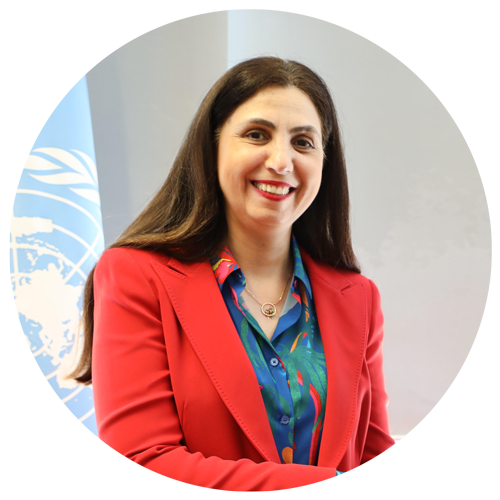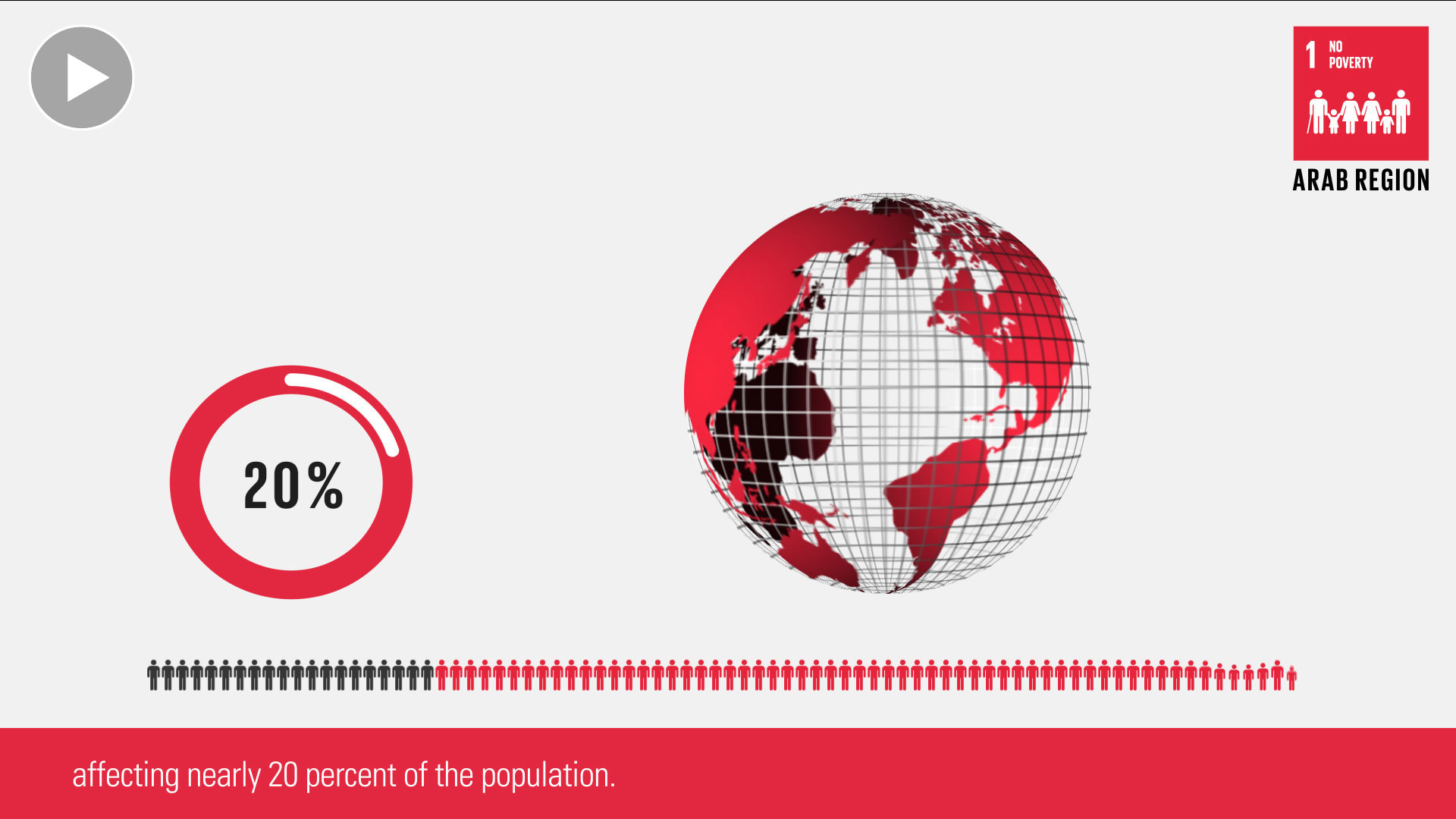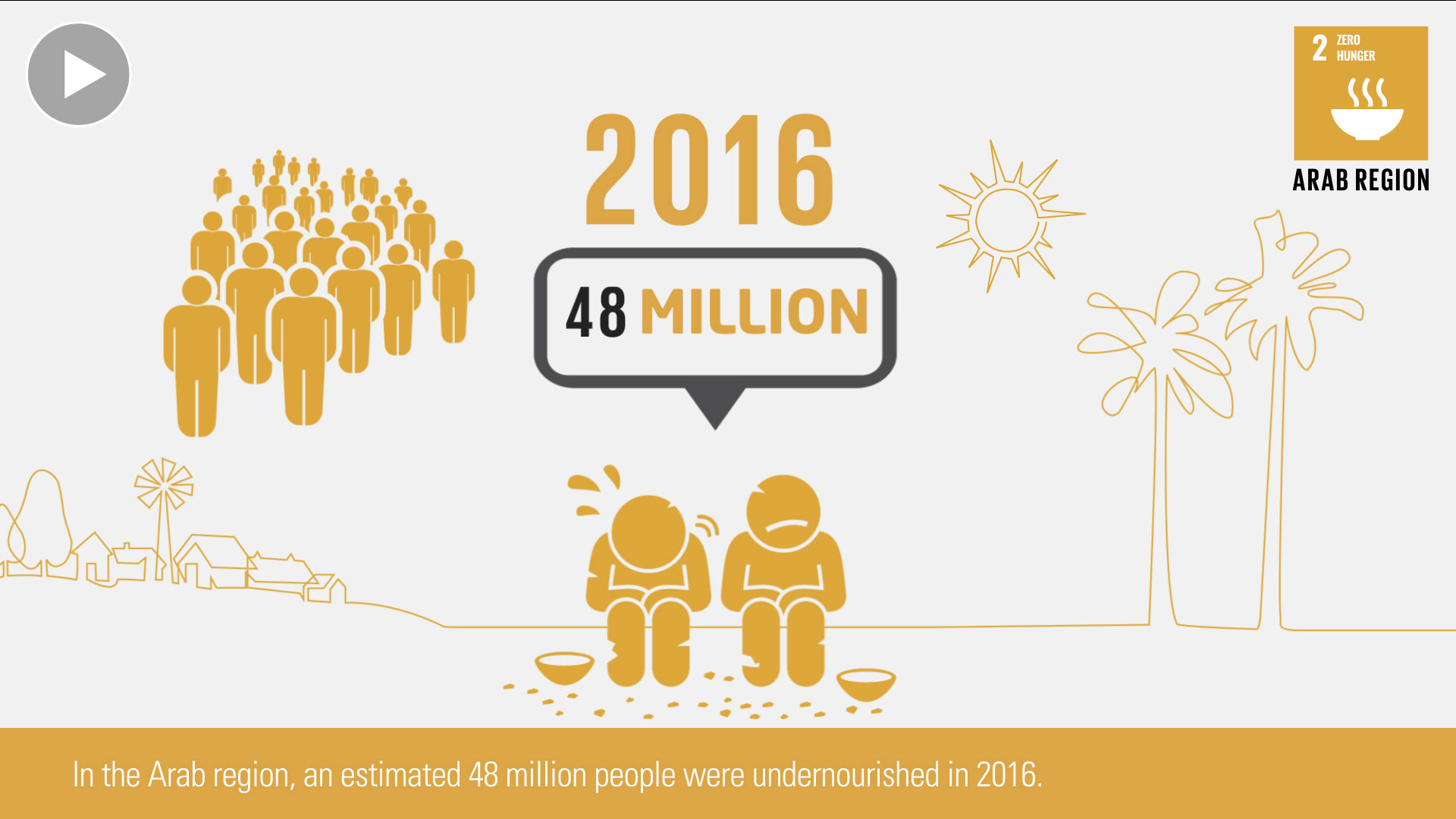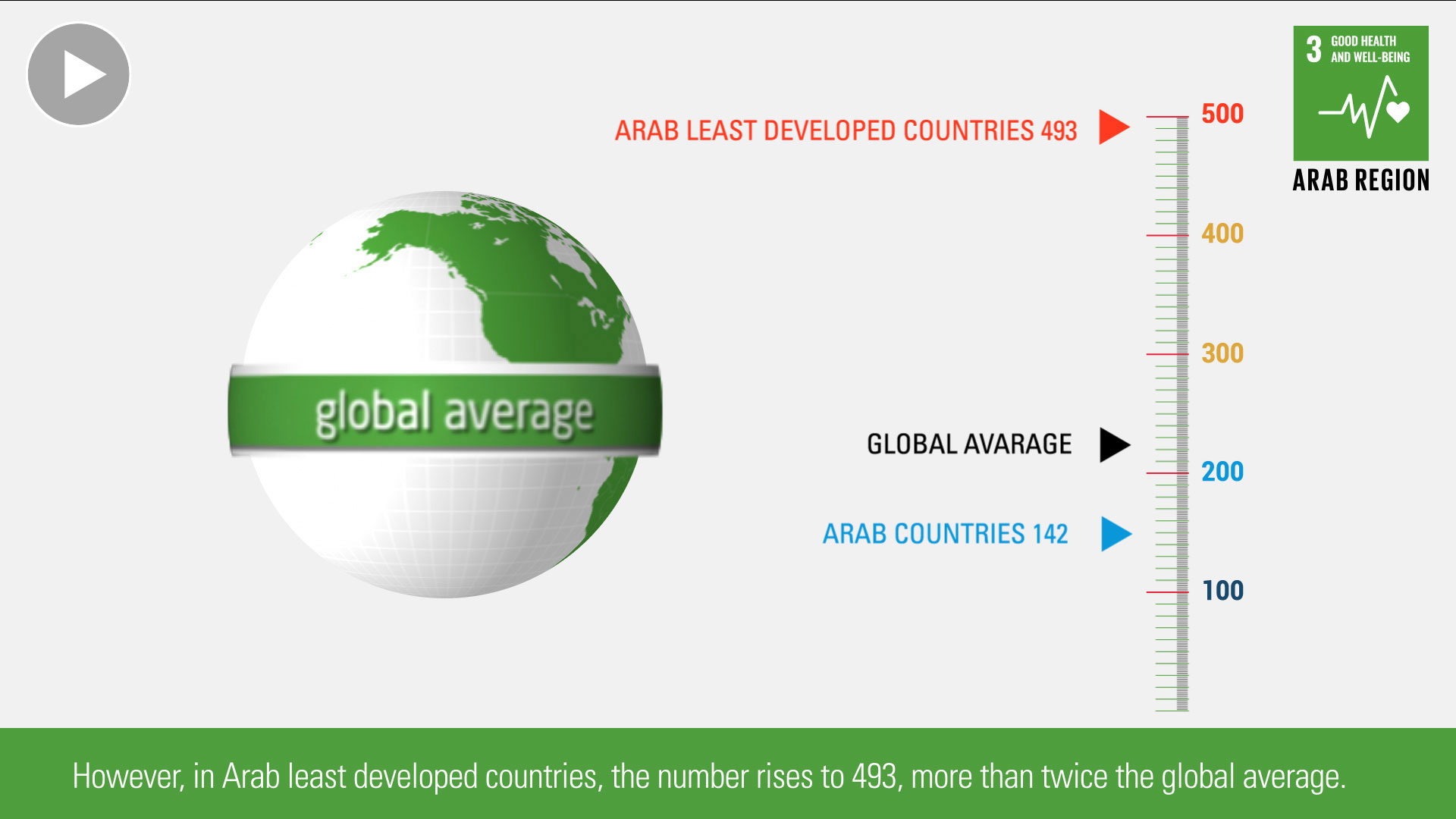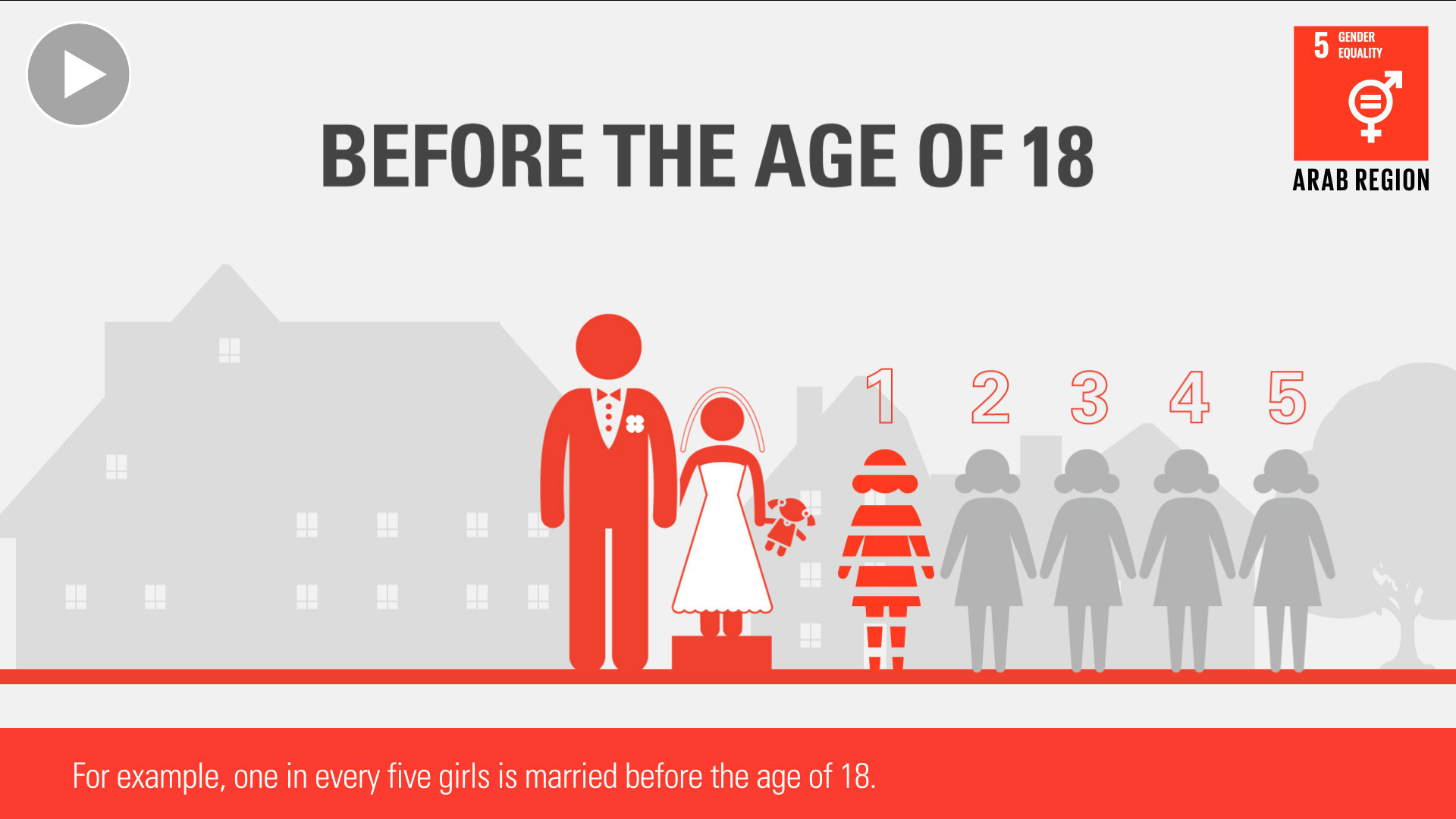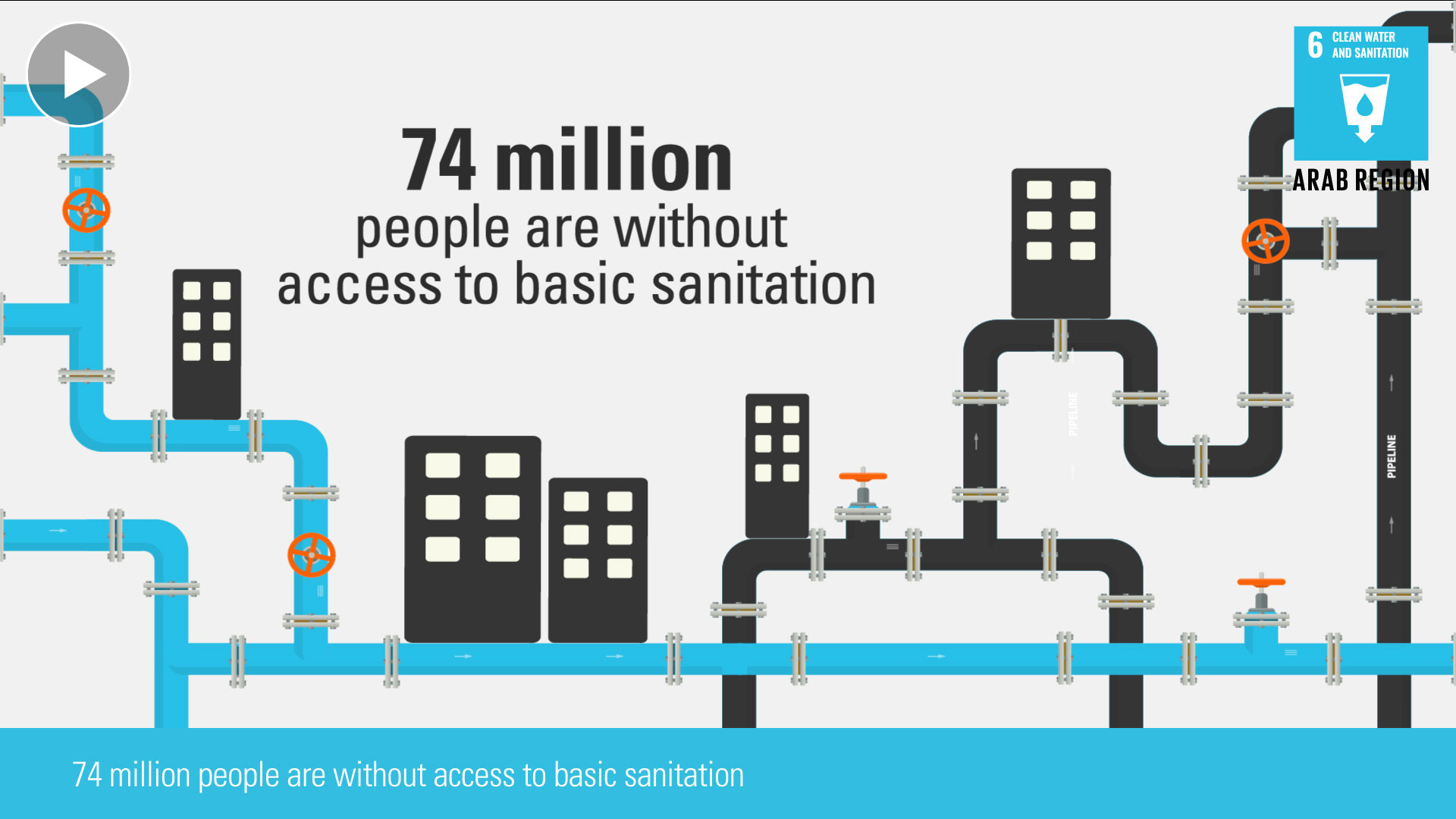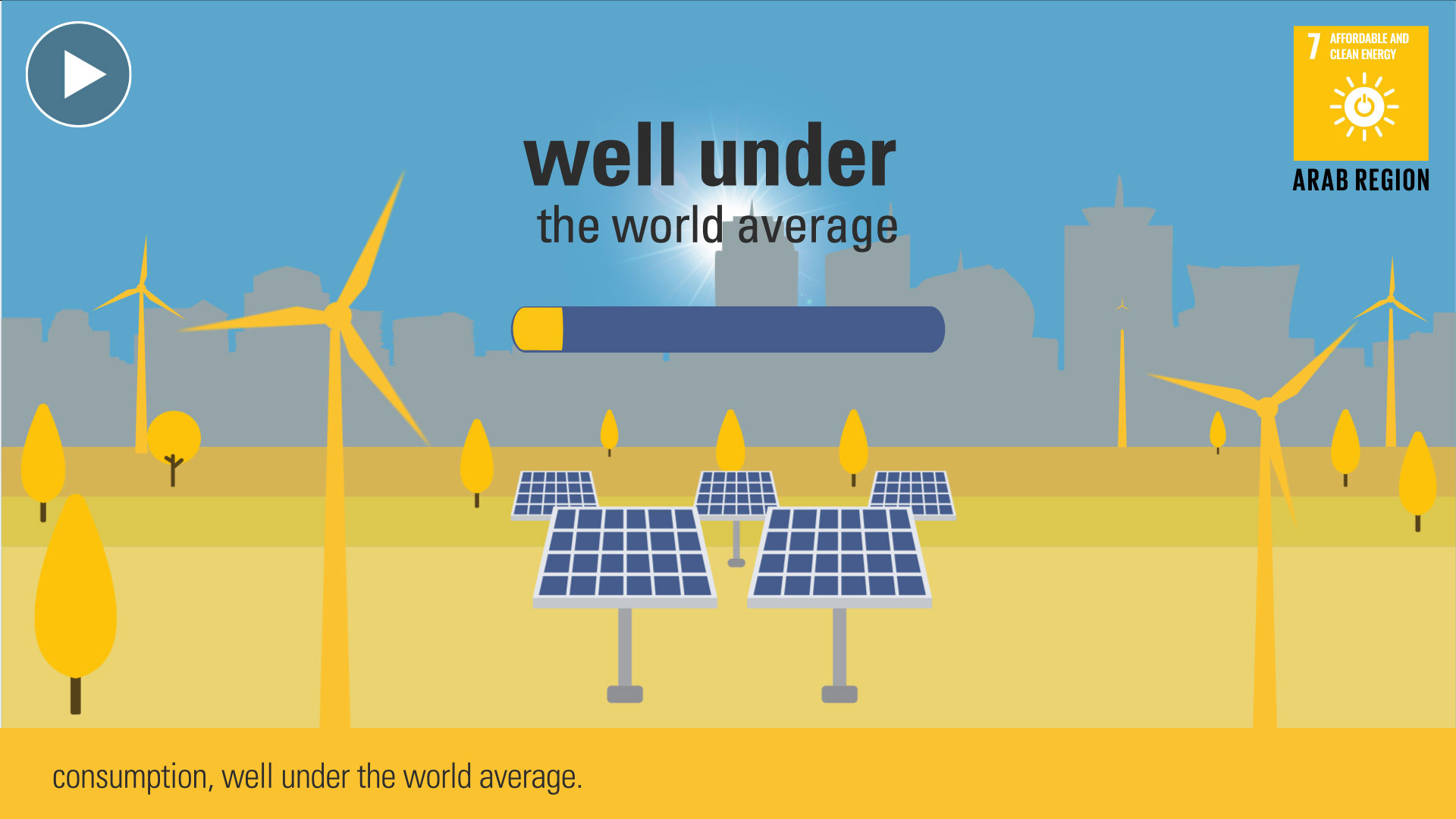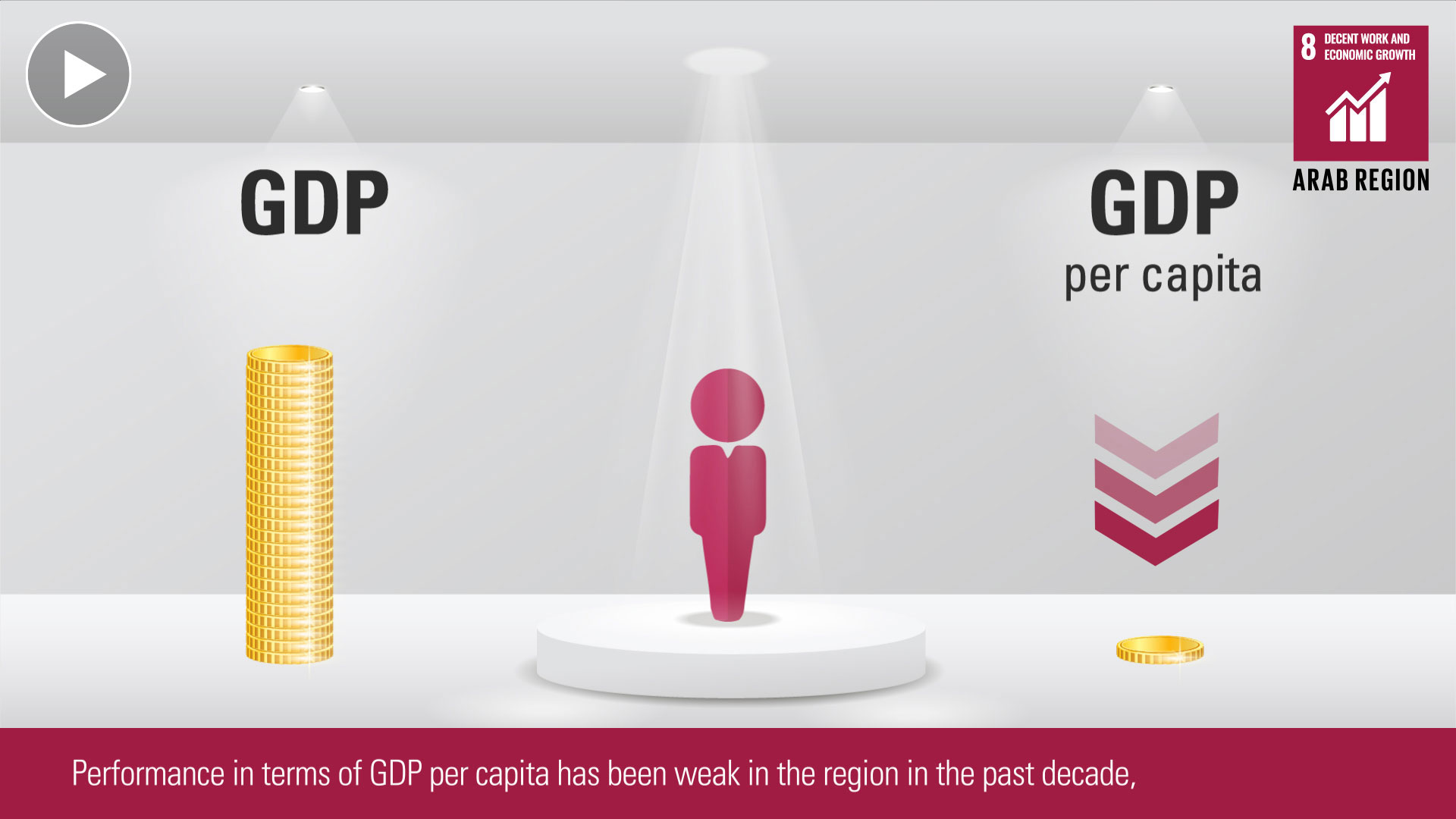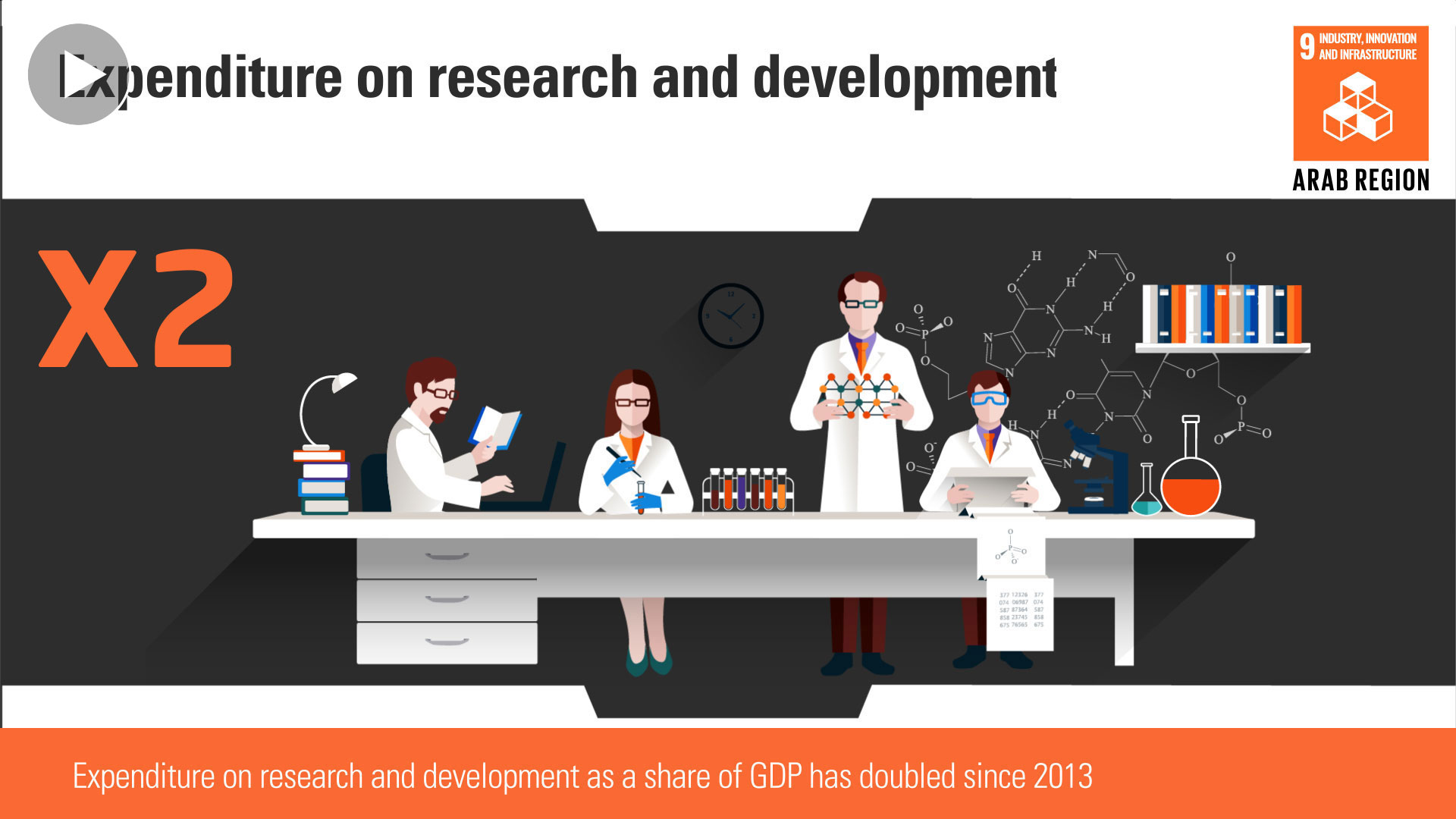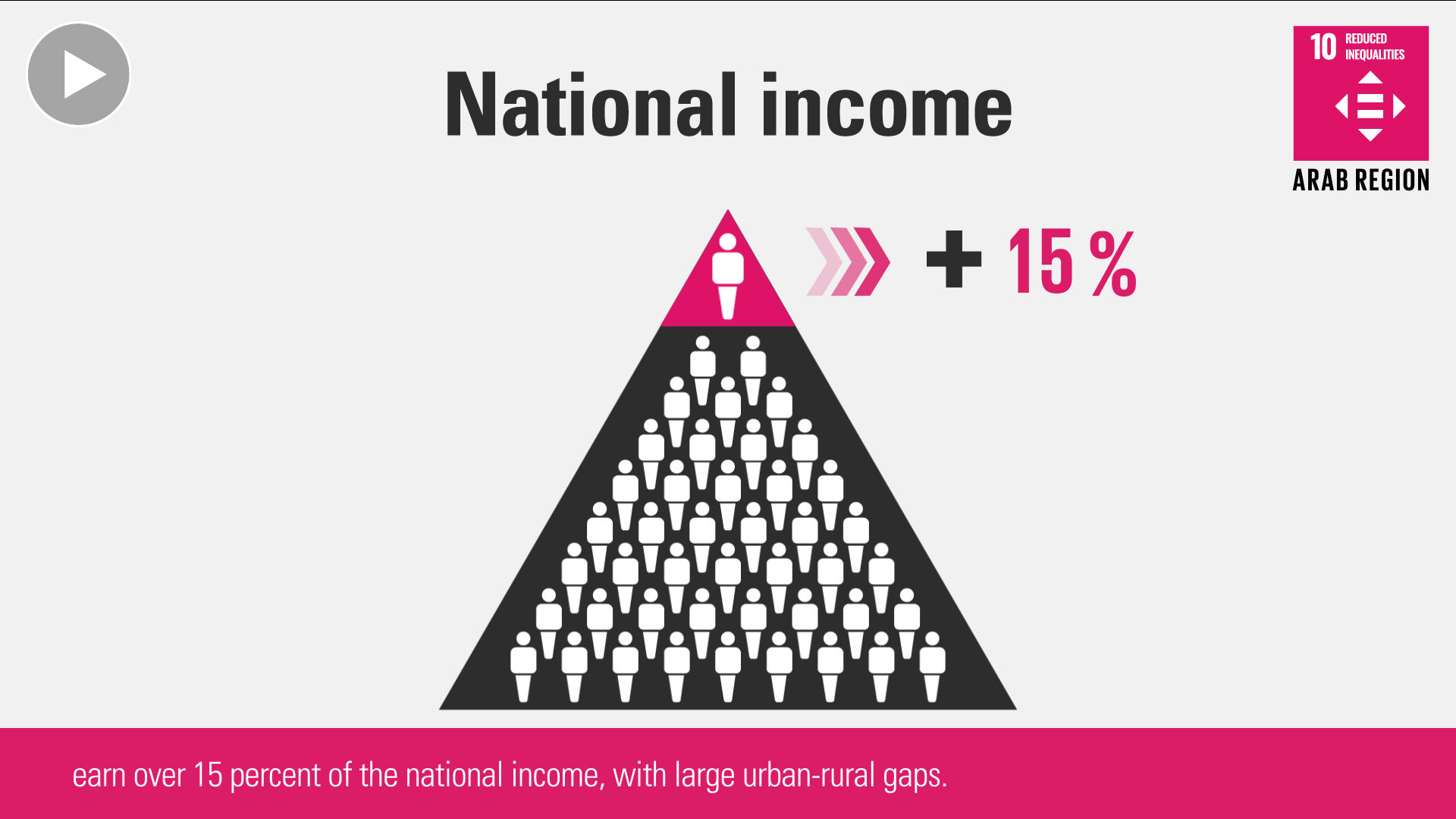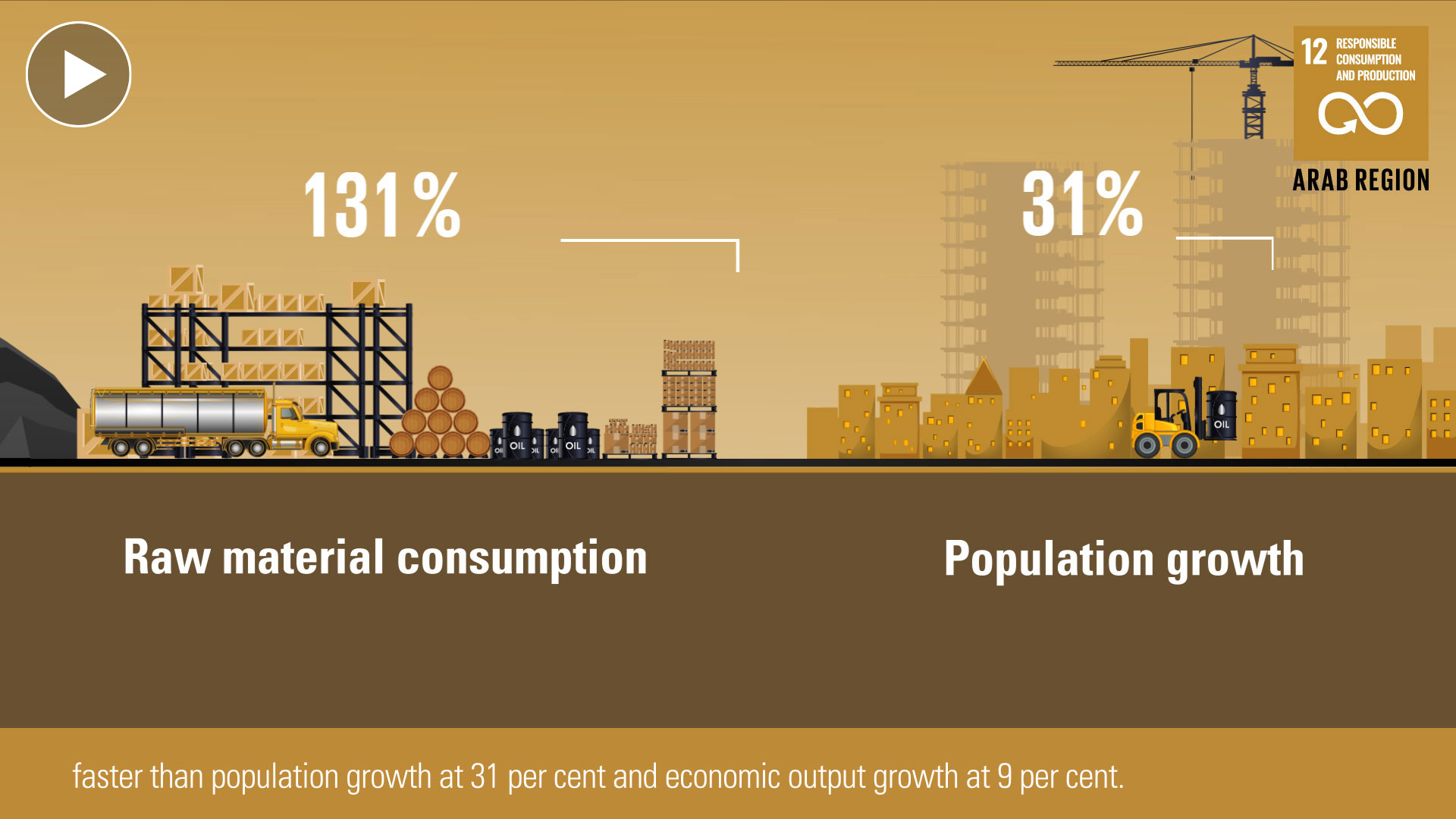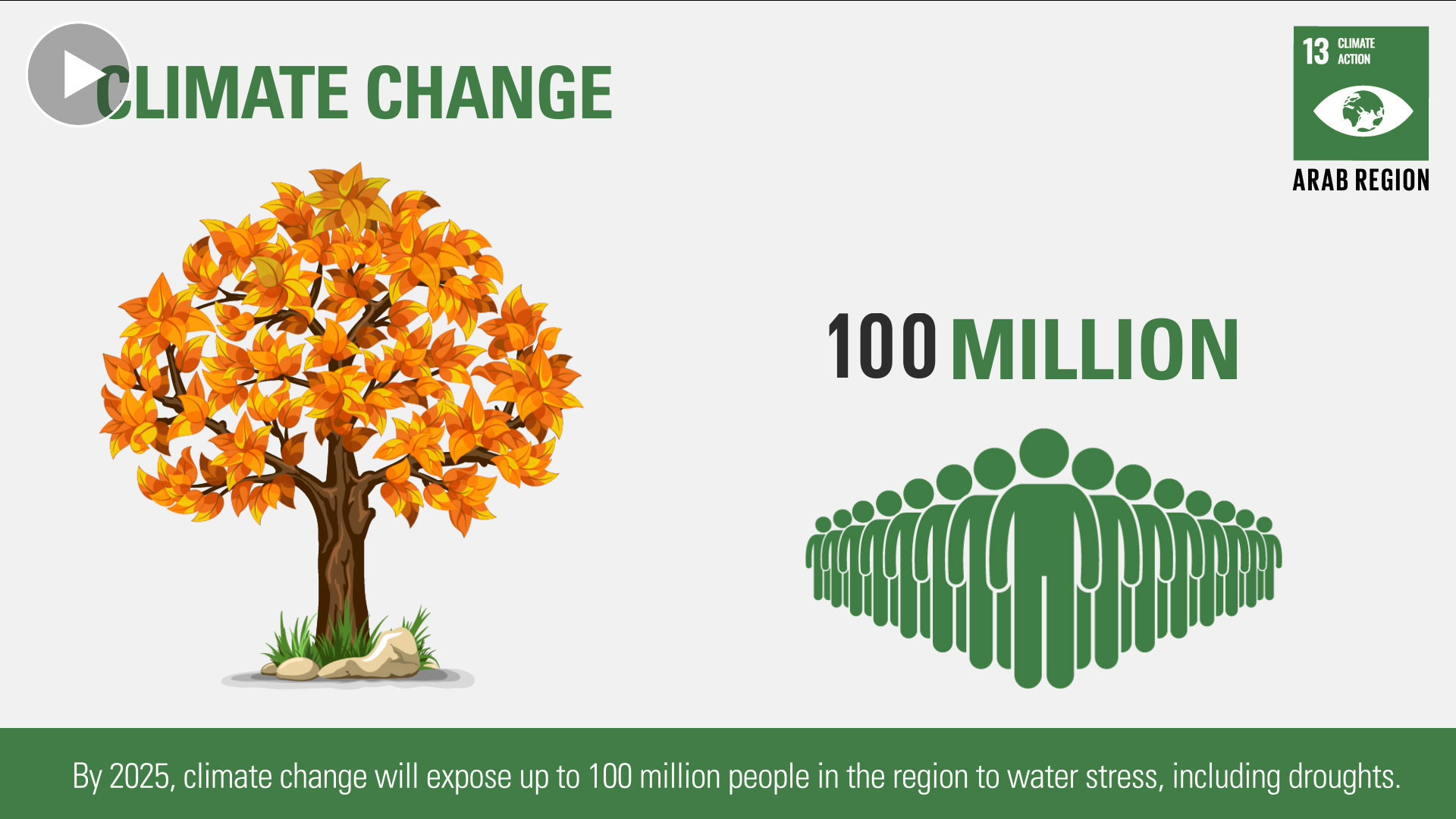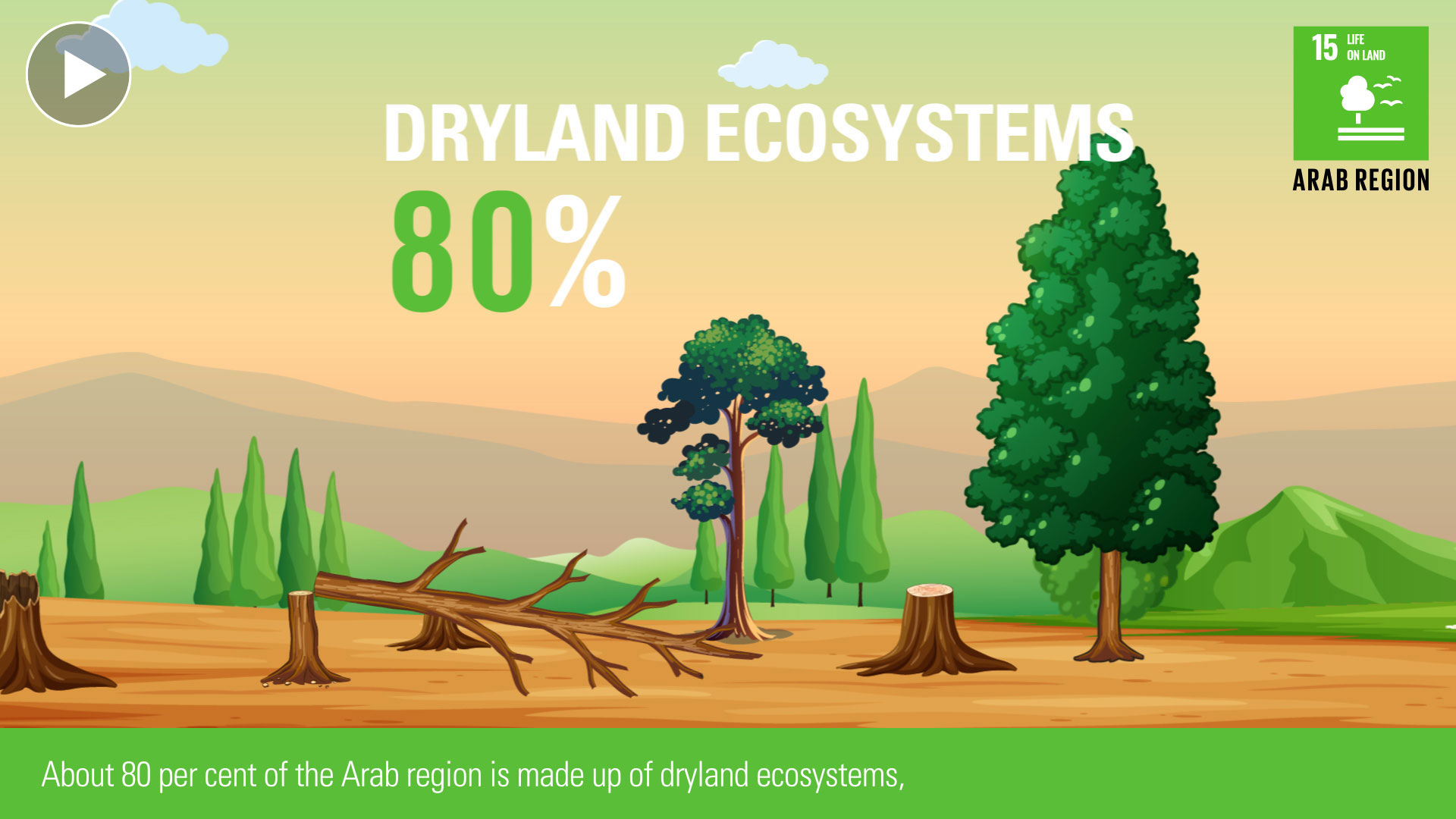“This is not a time for piecemeal efforts. Transformative change to more just, equal, prosperous and peaceful societies, across all sectors of development, is not about terminology. It is not a new buzz word. In this region, now more than ever, it is an existential imperative: the region must transform. To do so, it must dismantle the structural barriers to achieving the 2030 Agenda.”
Rola Dashti Executive Secretary UN ESCWA
The 2030 Agenda calls for transformative change and paradigm shifts. Mobilizing domestic and external resources is a pressing challenge in the Arab region, and the pace of efforts on the SDGs must accelerate. However, transformative change not only requires financial resources and an acceleration of efforts but, above all, demands a shift in orientation and approach towards policy integration, environmental sustainability, and universal human rights with their emphasis on equality, justice, inclusion, fundamental freedoms and participatory politics.
The story of the SDGs in the Arab region, therefore, is also a story of human rights, gender equality, sustainability and integrated development. The gravity of the task, and the scale of the ambition, are greater than measuring progress at goal, target and indicator level. Five years into the era of the 2030 Agenda and the SDGs, the present report is a reminder that the starting point for implementation and the horizon for achievement must be aligned for change to be transformative. It is only through the alignment of policies and other interventions with the overarching framework of the 2030 Agenda that the region, and the world, can hope to achieve the 2030 Agenda. How close, or how far, the Arab region is from this alignment is the story the present report aims to tell.
17 SDGs in the 22 Arab countries
Despite great diversity and contrasts in resources and income levels, political traditions, social outlooks and cultural practices, overall the 22 Arab countries share more than what differentiates among them, including structural barriers to the implementation of the 2030 Agenda. ASDR 2020 considers the status of the 17 SDGs in the 22 Arab countries and presents regional and sub-regional averages.
SDG 1: End poverty in all its forms everywhere
Poverty and inequality are widespread across the Arab States. Extreme poverty is particularly high in the least developed countries. Efforts to tackle poverty in the region have not adequately addressed multiple deprivations, rural-urban as well as subnational divides, or the accentuated vulnerability of different social groups. Integrating social and environmental dimensions in economic planning is necessary if governments are to make progress on SDG 1. Also imperative is the political will to design social and redistributive policies to counter increasing inequality and exclusion.
SDG 2: End hunger, achieve food security and improved nutrition and promote sustainable agriculture
The Arab States region relies heavily on food imports, making it vulnerable to the unpredictability and inequities of global trade. Agricultural productivity is low in many countries, and agricultural practices are often unsustainable, diminishing the medium- and long-term availability and the affordability of food. Water scarcity, climate change and increasing urbanization exacerbate the situation. Hunger
and undernourishment are rising, especially as a result of conflict, but pockets of deep chronic hunger are also found across the region. Progress on SDG 2 depends on structured and tailored investment
in sustainable agriculture, the broader use of knowledge and technologies to increase agricultural productivity and resiliency, where possible, and an end to conflict. Regional cooperation is essential to shore up resilience as well as to advance a common agenda to improve the governance of global trade.
SDG 3: Ensure healthy lives and promote well-being for all at all ages
Past decades have witnessed significant improvement in key health indicators in the Arab region, including lower maternal and under-5 mortality. Yet overall, levels of health and well-being remain significantly uneven within and between countries. Health services are fragmented and often supply driven, and access to universal health coverage varies widely within and among countries and social groups. Most health systems continue to focus largely on curative health services instead of primary and preventative care, and pay little attention to the social determinants of health. The region as a whole needs to shift to a rights-based and multisectoral approach to human health and well-being, including through consolidating systems and services, enhancing the capacity and numbers of service providers, and addressing the economic, social and environmental dimensions of SDG 3.
SDG 4: Ensure inclusive and equitable quality education and promote lifelong learning opportunities for all
Despite expanding enrolment and increased investment, education is falling short of its transformative potential in the Arab region. The main challenges are weak quality, outdated teaching and learning methods, and inequitable access and infrastructure. Without re-envisioning education as a societal project to produce critical and innovative thinkers and citizens, the region will not be able to harness education’s lifelong potential as articulated in SDG 4. This new vision is crucial to achieve sustainable development; spread values of equality, justice and peace; and enhance the employability of youth.
SDG 5: Achieve Gender Equality and Empower All Women and Girls
Arab countries have made measurable progress in expanding women’s and girls’ access to health services and education. Women continue to break new ground in many areas of life. Discriminatory laws and legal practices, discriminatory social and cultural norms, and structural barriers to gender equality remain entrenched, however. Women’s economic participation is particularly behind, especially among young women. As a result, women often face constraints on their independence and full human rights, including to play an active role in decision-making, at home and in the public sphere. Women’s full political and economic participation will be critical to achieving SDG 5 and all other SDGs by 2030.
SDG 6: Ensure Availability and Sustainable Management of Water and Sanitation for All
Freshwater scarcity is a defining challenge for the region, and is exacerbated by transboundary dependency, occupation and conflict, and climate change, as well as population growth and increased urbanization. Achieving SDG 6 requires the region to adopt a human rights-based approach to water and sanitation, along with robust water governance structures within and between countries, and strategies that link water, energy and food security. Considerable investment is needed in infrastructure, appropriate technologies, and the use of non-conventional water resources to improve productivity, sustainability and access for all.
SDG 7: Ensure access to affordable, reliable, sustainable and modern energy for all
The Arab States have made significant progress towards universal access to electricity but the least developed countries lag far behind. Rapid growth in domestic energy consumption and increased energy intensity associated with economic growth are significant challenges. Accelerating progress on SDG 7 requires a decisive policy shift to decouple economic growth and energy consumption, enhance efficiency and productivity, and increase investment in and use of clean and renewable energy. A whole- of-society transition towards sustainable energy is needed. Supporting this transformative shift in turn requires developing free and vibrant voices in the academy, media and civil society.
SDG 8: Promote sustained, inclusive and sustainable economic growth, full and productive employment and decent work for all
Economic growth in the Arab States has been uneven and generally failed to meet demand for productive employment and decent work. Economic planning has been largely detached from social policies and governance structures that could increase equality and prosperity. Overdependence on oil, the dominance of low-productivity sectors and a problematic labour market further hamper efforts to move towards sustainable growth that safeguards the well-being of people and the planet. A shift in economic thinking and planning aimed at economic structural transformation is necessary for the region to move forward on SDG 8.
SDG 9: Build resilient infrastructure, promote inclusive and sustainable industrialization and foster innovation
The Arab region has yet to take comprehensive steps to shift towards sustainable and inclusive industrialization, in a context of struggling economies, rising unemployment and inefficient and unsustainable use of natural resources. Infrastructure needs are vast, especially in the least developed countries, and the region has the weakest degree of economic integration in the world. It also has the lowest levels of innovation based on investment in and the productivity of research and development (R&D). Prioritizing innovation, moving forward with regional integration and enhancing the resiliency of infrastructure demand comprehensive policy shifts and related investments and instruments. They also require political will committed to embracing the different dimensions of sustainable development, and the fundamental connectivity of systems, goods, communities and peoples across the region.
SDG 10: Reduce inequalities within and among countries
Levels of income, access to resources and services, and political participation vary widely across and within the Arab States. Inequality runs along class, subnational and gender divides, among others. Despite few official measures of inequality, widening gaps among different social groups and areas can readily be observed. These threaten social cohesion as well as economic prosperity and political stability. Reducing inequalities requires reasserting the role of the State as the guarantor
of equal economic and social rights, and implementing policies to equitably redistribute resources. This is a political process first and foremost. At the national level, it necessitates structural changes in economies and institutions as well as social and legal changes to end all forms of discrimination. Supportive global mechanisms must also be in place.
SDG 11: Make cities and human settlements inclusive, safe, resilient and sustainable
Arab cities are vibrant centres of economic, cultural and social activity. Across the region, however, increasing and unplanned urbanization, largely due to poverty, climate change and conflict, places immense pressure on cities and human settlements as well as scarce natural resources. This is exacerbating exclusion and vulnerability. While cities have historically hosted diverse groups of internal and international migrants as well as displaced people, inequalities in and among cities and settlements are pervasive. Disparities persist in access to quality land and housing, services and infrastructure, as well as public spaces and a clean environment. To accelerate progress on SDG 11, Arab countries must meet the challenges of urbanization with people-centred planning and integrated spatial policies. Better governance in cities and settlements is another imperative, along with the sustainable management of natural resources, including land.
SDG 12: Ensure sustainable consumption and production patterns
SDG 12 encapsulates the entire sustainable development paradigm at the local, national, regional and global levels. In the Arab region, the urgent need to address unsustainable consumption and production patterns is clearly reflected in trends such as increasing water scarcity, rapidly rising energy use and associated greenhouse gas emissions, escalating generation of waste, very low levels of reuse and recycling, and worsening air and water pollution. Several countries have recently adopted national sustainable consumption and production plans, a step in the right direction. Major adjustments
to incentives driving unsustainable patterns of consumption and production are needed, however. Progress requires transforming from a focus on economic growth alone to an embrace of sustainable development, mobilizing and regulating the private sector to support such a transformation, and engaging communities and individuals in steering this paradigm shift.
SDG 13: Take urgent action to combat climate change and its impacts
The impact of climate change is acute in the Arab region as temperatures continue to climb. Vulnerability is on the rise as vast numbers of people confront growing water scarcity and droughts. An increase in disasters and extreme weather events takes a toll through loss of life and economic damages. While many countries are investing in climate adaptation and diversification of their economies, and adopting national disaster risk reduction strategies, more comprehensive, regional and multi-stakeholder efforts are needed. The region must strengthen the science-policy interface to tackle climate change, and better integrate climate change impact and risk assessments into planning systems.
SDG 14: Conserve and sustainably use the oceans, seas and marine resources for sustainable development
Marine areas surrounding the Arab region are under threat from ocean warming and acidification and marine pollution from offshore and onshore development activities. A growing proportion of marine areas have reached biologically unsustainable levels of overfishing and illegal fishing. These changes threaten the health, well-being and prosperity of people across the region and for generations to come. More informed, coherent and effective policies are needed to establish marine protected areas, and
to enhance data as well as institutional and technical capacities to effectively monitor, enforce and sustainably manage marine resources.
SDG 15: Protect, restore and promote sustainable use of terrestrial ecosystems, sustainably manage forests, combat desertification, and halt and reverse land degradation and halt biodiversity loss
Biodiversity is on the decline in the Arab region; desertification is on the rise. Land degradation, deterioration of ecosystems, and loss of biodiversity, including in forests, have a progressively negative impact on human health and well-being, poverty alleviation and the natural environment.
The sustainable management of land through protected areas and sustainable agriculture, along with coordinated and strategic regional planning, and greater investment in sustainable forest management and landscape restoration, are necessary to reverse the current trajectory of loss and degradation.
SDG 16: Promote peaceful and inclusive societies for sustainable development, provide access to justice for all and build effective, accountable and inclusive institutions at all levels
Weak rule of law, low adherence to universal human rights treaties and conventions, and the exacerbating conditions of conflict as well as occupation are detrimental to the ability of the Arab States to achieve SDG 16. Governance deficits, including a shrinking civic space, corruption and limited political participation for a number of social groups, hinder efforts to move toward sustainable development, and increase polarization, discrimination and inequality. Genuine political will to address the root causes of these challenges and the opening of civic space are necessary to transition to
just, peaceful and inclusive societies. So is the creation of effective, transparent and accountable institutions capable of supporting the achievement of all 17 SDGs.
SDG 17: Strengthen the means of implementation and revitalize the global partnership for sustainable development
SDG 17 encapsulates the interdependence, complementarity, and shared and differentiated
responsibilities of all countries to support transformative change. Means of implementing the 2030
Agenda are not determined by national conditions alone. SDG 17 targets capture the broader focus of
the Addis Ababa Action Agenda of the Third International Conference on Financing for Development.
They implicate global frameworks and dynamics that structure the flow and management of resources,
whether financial, economic or natural; that determine the mobility of people; and that define the
exchange and transfer of knowledge and capacities.
In addition to the pressing challenges facing Arab countries in securing means of implementation at
the national level, global economic structures remain unsupportive. They drive inequality between and
among countries and regions, while international aid and transfer of knowledge and expertise remain
far below expectation and need. Regional entry points are also crucial. They can facilitate or stunt the
ability of countries to mobilize political will, expertise and resources to tackle transboundary priorities,
which are stark in the Arab region, including those related to water, food security, climate change and
peace. Arab countries have yet to consolidate the political will to enhance regional integration across
different dimensions of sustainable development and realize its potential to advance the 2030 Agenda.

